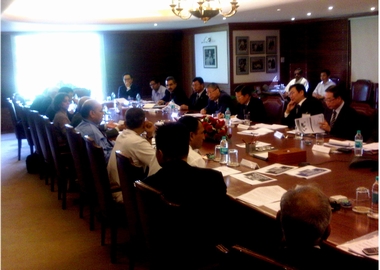
The Consulate General of the Republic of Korea and Gateway House: Indian Council on Global Relations hosted a private roundtable meeting to discuss “Who controls the seas?: Towards a Global Maritime Regime”.
This was the second meeting held by Gateway House as part of our Maritime initiative. The intimate roundtable discussion revolved around issues relating to access to sea lanes of communication, maritime security, piracy, maritime terrorism, freedom of movement in international waters, maritime boundaries, resources of the seabed and a unified global maritime policy regime. In the next few decades, the center of geopolitical gravity will not be the Gulf or Asia-Pacific region, but the greater Indian Ocean rim. Here, in India’s strategic backyard, globalization’s networks are expanding. There is increased trade and globalization, which has made access to sea lanes critical to all economies. The wealth of the oceans and the movement of commerce, particularly fossil fuels on which the global economy – especially India – depends, will make this discussion a compelling one for Indian business.
Three experts in maritime security from the International SLOC (Sea Lanes of Communication) Group attended this meeting. The meeting started with Dr. Seo Hang-Lee, Consul-General of Korea discussing “Major Threats to SLOC Security in Indian Ocean” followed by Dr. Joon-Soo Jon, Professor, Sogang University presenting “Shipping in East Asia and Cooperation between Korea & India”. Mike Pinto, the Former Indian Shipping Secretary was also present in the interactive roundtable.
